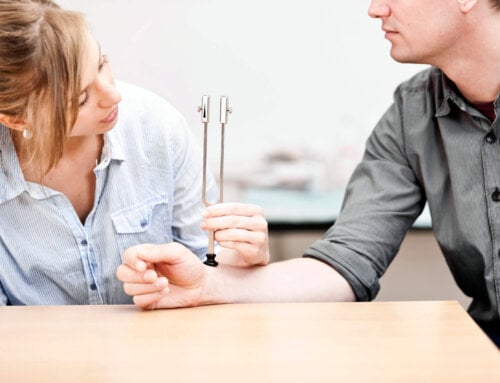Hands down all the information my patients request about diabetes and its complications centers around weight issues, food intake and weight control. My usual answer is that “you are eating too much and not moving enough”. Most patients generally hesitate yet finally agree to that theory. Although this is still considered the top reason why people do not lose weight I just wanted to share some other theories in the news which may apply to you. Remember even though these theories may be part of the reason why you can’t lose weight you still have to accept the reality that weight loss comes from smaller portions, better food choices and any kind of increased movement whether you call it exercise or not!
- BPA exposure – Bisphenol A (or BPA) has recently been in the news. It is contained in certain plastic water bottles as well as on the insides of soup, fish, chicken and vegetable cans. It can be found in other beverages packaged in cans, plastic food containers, and paper receipts from the supermarket, boarding passes, credit/debit charge receipts and most paper tickets. A study done by Spanish researchers reported an interesting correlation. They exposed human pancreatic cells [where insulin is made] to tiny amounts of BPA. It caused the cells to double the amount of insulin needed to metabolize the sugar in the meal. In time excess insulin or hyper insulinemia can encourage the body to store more fat especially around the waist line. There really is no standardized or routine testing of BPA but according to Dr. H Taylor, a reproductive endocrinologist at Yale University, most Americans have high levels of BPA circulating in the blood. The best idea is to reduce BPA exposure. Choose fresh or frozen fruits and vegetables instead of those in a can. Choose glass over plastic for drinking or find BPA free plastic bottles. Try to reheat foods in glass or on microwave safe dishes instead of plastic containers. Store or freeze foods in glass instead of plastic. Think about what you can do on line for ticket purchases so you can reprint them out on BPA free paper.
- Medications have been known to put extra weight on. There are medications called SSRIs or Selective Serotonin Reuptake Inhibitors. Examples would be Paxil, Pexeva, or Celexa. These antidepressants used to treat anxiety or depressions have been known to increase appetite. Your physician could change to another type or brand that increases dopamine which may reduce hunger. An example is Wellbutrin. Certain blood pressure medications can also lead to weight gain since they may decrease metabolic rate. Beta blockers such as Tenormin or Lopressor can add weight but ARBS or ACE inhibitors usually do not. You need to check with your physician to find out which is the most appropriate blood pressure medication for you. Many types of anti-histamines used to treat allergies like Benadryl or Alka Seltzer plus Allergy may increase hunger. Other choices which contain less potent chemicals including Claritin or Zyrtec can cause less of an appetite. Medications for sleep disturbance can increase appetite and weight gain if used daily. Instead of OTC brands like Sominex or Nytol ask for a prescription of Ambien and try not to take it nightly. Insulin causes weight gain since it helps you use the sugar from the food by getting it into the cells instead of excreting it through the urine (never stop taking insulin for this reason). Diabetes oral medications called Sulfonylurea’s-Glipizide; Glyburide and Glimiperide are known to promote weight gain as well as TZDs – Actos and Avandia (black boxed – not really being prescribed anymore due to multiple side effects). This is just a short list and I am sure there are many more medications which may cause weight gain but you must weigh the benefits and risks with your physician; never change or go off medications without checking with your health care provider!
- Addictive foods- New research suggests that certain foods can be addictive just like drugs and alcohol. Studies using both sugar and fat show that over time larger doses of these foods were required to get that same “feel good” sensation. According to Dr. Brownell from Yale University the human body is adapted to deal with natural food and when presented with processed food the mental and physical addiction takes over along with the weight gain. Gaining pleasure from food is important but indulging in a roasted peach instead of a bag of chips will be a positive measure. The less sugar and fat you eat will allow you to experience fewer cravings!
- Another possible cause of weight gain is systemic inflammation. Inflammation means the body’s immune system works over time and can interfere with a hormone called Leptin; in a person of average weight leptin can decrease appetite and increase metabolism. In an overweight person the leptin signal can get lost. Inflammation can result from stress, excess sun, sedentary life style, disease processes or food additives. Foods such as salmon, almonds, egg whites or apples may decrease inflammation as well as Omega 3 fish oil or supplements.
This is a partial list of why it may be difficult to lose weight and keep it off. I will continue with another newsletter to offer you other potential reasons why you may not being losing weight. Please do not use this as an excuse but realize that it as added information as to why weight loss may be more challenging! Keep motivated the old fashioned way with food moderation and exercise and I promise eventually you will see weight loss results!
NOTE: Consult your Doctor first to make sure my recommendations fit your special health needs.













Leave A Comment